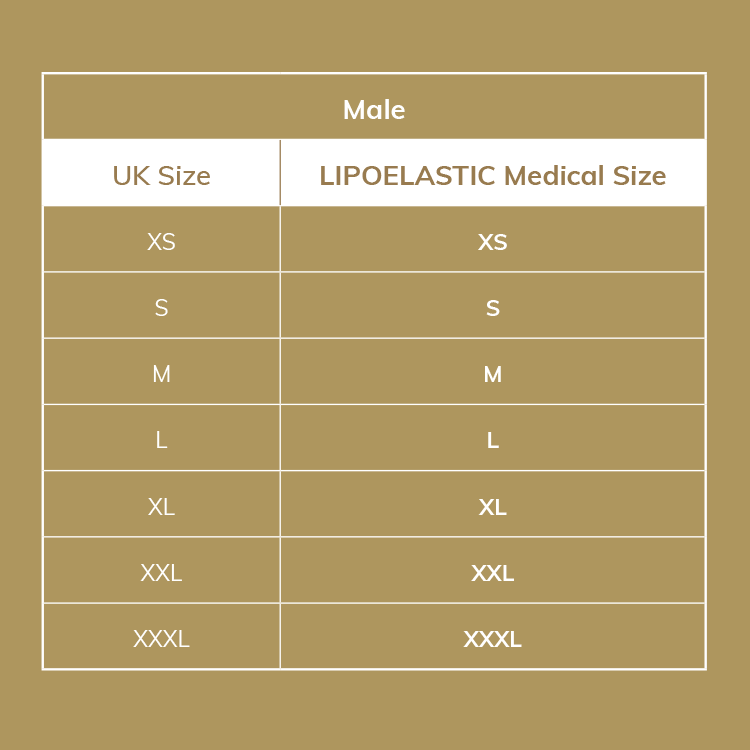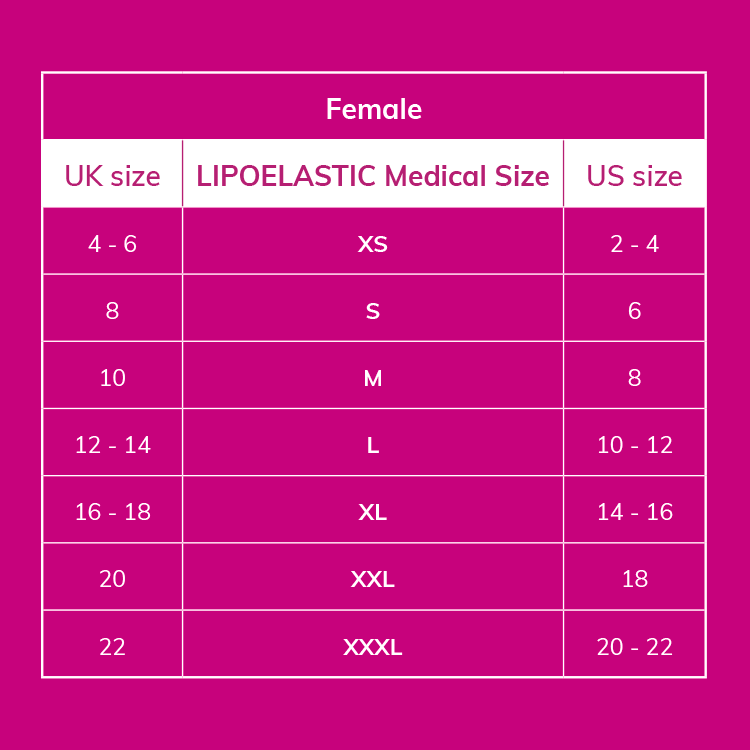.jpg)

If you know what type of garments you are buying, view the product page to find information on what areas to measure.
Then, measure required areas and find the right size in the size chart.
There are several points on the body which we use as base points for the measurement of post-surgery garments (see diagram).
For most women, hips are the widest body part. If your hips fall into a higher size category than your waist, you should always choose the size that is applicable to your hips. If on the other hand, your hip measurements fall into a smaller size than your waist measurement (prior to a surgery), then you would go down a size in the waist to reflect the hip measurements. **This only applies if there is a one size difference between the waist and hips. If your waist is more than one confection size bigger than your hips or if your measurements range across several different sizes, please contact us for assistance prior to making a purchase.
Please consult the sizing charts if in any doubt.
Bear in mind that a compression is a journey, not a destination. All of our garments have a hook and eye adjustment option allowing for reduction in swelling as your journey endures. It is very possible, that you may need to move to a second stage garment or smaller size garment throughout the aftercare to ensure that the surgical site continues to be compressed correctly at each stage of recovery.
LIPOELASTIC products are medically sized. We strongly recommend measuring yourself prior to buying any compression garments. This conversion table should provide you with some helpful guidance, but under no circumstances should it replace correct measurements being taken. The most important parameters are hips.
.jpg)

LIPOELASTIC products are medically sized. We strongly recommend measuring yourself prior to buying any compression garments. This conversion table should provide you with some helpful guidance, but under no circumstances should it replace correct measurements being taken. The most important parameters are hips.
.jpg)

Measure around the arm at the fullest part of the biceps.
Measure around the fullest part of the bust/chest area while wearing usual undergarments.
Measure around the chest circumference directly under the breast.
Measure around the smallest part of the waistline.
Stand with both feet together and measure around the fullest part of the hip area.